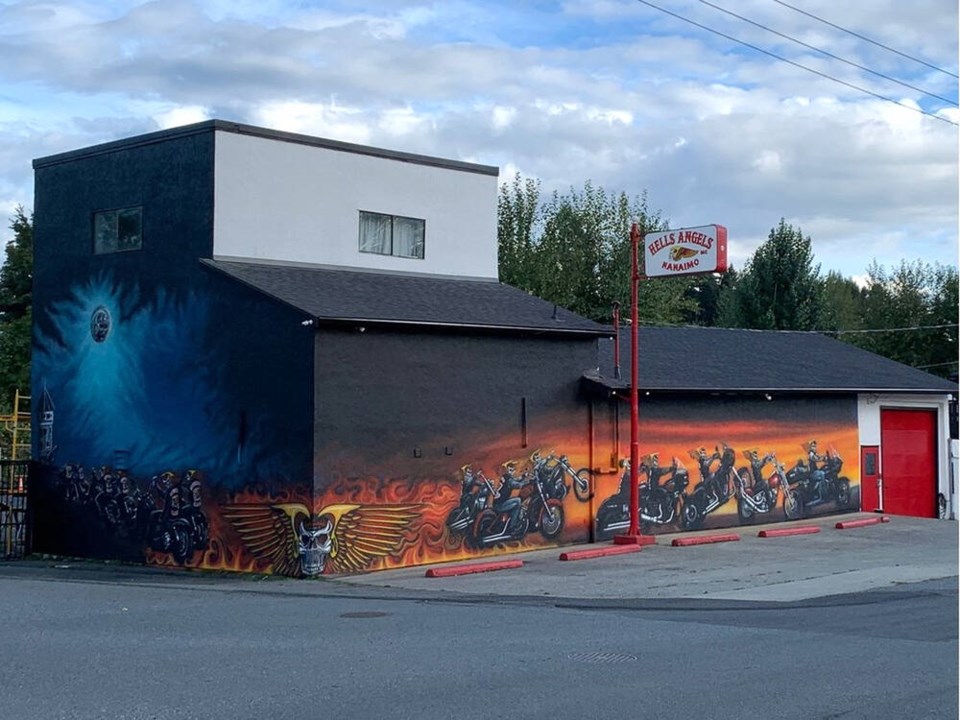VANCOUVER — The B.C. Court of Appeal has turned down a Hells Angels’ bid to prevent the province from selling three biker clubhouses it seized earlier this year, until the Supreme Court of Canada can decide on an appeal.
The Hells Angels went to the Court of Appeal to ask it to order a hold on its Feb. 15 ruling that allows the director of civil forfeiture to sell properties in Nanaimo, Kelowna and East Vancouver. The bikers also wanted the province to be ordered to pay taxes, utilities and home insurance on the clubhouses until the Supreme Court of Canada decides on the club’s appeal on the fate of the buildings.
Canada’s highest court must first agree whether it will even hear the Hells Angels’ appeal. Of the 600 applications for leave the court gets each year, only 80 are granted.
The three land titles were transferred to “His Majesty the King” on March 17 — and the locks were changed and inventory-taking begun a month later — after a legal battle that began in 2007.
In its latest ruling, the Appeal Court refused to put a hold on the sales, saying that fell outside the scope of B.C.’s civil forfeiture laws for two reasons: The province has already seized the clubhouses and the earlier Appeal Court decision already ruled the seizures were legal.
Putting the application through a three-fold test on whether it should grant the hold, the Appeal Court ruled there was merit to the bikers’ application. But it ruled the club hadn’t shown enough evidence that the sale of the properties would cause it “irreparable harm.”
It also ruled the club has not shown that the “balance of convenience” weighs in favour of granting a hold on the sake because the province is more likely to suffer a loss or damages if it has to maintain the clubhouses while awaiting a Supreme Court of Canada ruling.
The court also rejected a request from the Hells Angels that if the sales were allowed to go ahead, the civil forfeiture office “must list and advertise the properties on the open market” on an arm’s length basis, and must submit a record of all buyer inquiries and offers, terms of sale and full proceeds of purchase price to the court. The Hells Angels also sought to limit the fees the office could pay to a real estate agent, and any lawyer or notary involved in the sale.
The bikers club said the court should order that it would receive any sales proceeds within 15 days if it wins its appeal in the Supreme Court of Canada.
The applications from the Angel Acres Recreation and Festival Property Ltd. were heard in May, about a month after the club asked the Supreme Court in Canada to review the February ruling by the B.C. Appeal Court.
The long list of orders sought by the club, to be in place until the Supreme Court of Canada decided, also included prohibiting anyone from entering the properties unless to preserve or maintain them.
The club also wanted the court to order the director to protect the property values, allow the defendants to enter the properties for four days to remove any personal property and allow it to store personal property there.
It wanted the province to pay “usual taxes and levies” and charges for power, water, sewage, gas and trash collection and buy insurance of not less than $1 million for each property, pending a Supreme Court of Canada ruling.
The case began in 2007 when police raided the Nanaimo clubhouse as part of a criminal investigation that did not lead to charges. However, evidence collected in the case was used to file a civil forfeiture lawsuit against the clubhouse.
In 2012, the East Vancouver and Kelowna clubhouses were rolled into the case, with the director filing evidence related to other investigations targeting members of those Hells Angels chapters.
In June 2020, B.C. Supreme Court Justice Barry Davies ruled in favour of the bikers when he said the government agency had failed to prove the Hells Angels was a criminal organization or that the clubhouses “play an important role in enabling and empowering members of the Hells Angels to engage in serious crime for financial gain.”
But on Feb. 15, B.C. Appeal Court Justices Mary Newbury, Christopher Grauer and Leonard Marchand said the Davies’ findings were “tainted” because he used an elevated standard of proof and refused to admit facts from previous criminal cases against individual Hells Angels.
The Appeal Court judges said they were satisfied by the “inference” the club members committed crimes by using information “gathered surreptitiously” at the clubhouses and by being protected from police surveillance while at the clubhouses and that “such use of the clubhouses was likely to continue.
— With files from Kim Bolan



